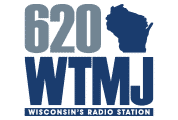Assembly Speaker Robin Vos has been a proponent of toll roads for over a decade – in 2016, he helped commission a study looking into the efficacy of a toll system in Wisconsin. Speaking at a Legislature roundtable at the Wisconsin Counties Association Conference, Vos again brought up the possibility of introducing toll roads to the Badger State.
“Imagine if in 2013 when we first started talking about tolling, if Wisconsin had already implemented it statewide,” Vos said. “It would mean that our transportation system is fully funded, we have more money for local roads than we would today, we would have a system that would actually work over the course of the the next hundred years as we decide whether or not to transition away from gas-powered vehicles,” Vos said.
Dr. Robert Poole is the Director of Transportation Policy for the Reason Foundation in Los Angeles. He has also written about tolling in Wisconsin specifically for the Badger Institute. He said tolling no longer means automatic delays on the highway.
“It’s not 20th century tolling anymore where you stop in a long line at toll booths. It’s all electronic tolling,” he said.
Poole said he believes transitioning to a toll system would be a better source of revenue for the state than the current gas tax.
“I think that has become a much more viable way of paying for at least big limited-access highways, and could be the starting point for Wisconsin and other states starting their transition from per-gallon fuel taxes to per-mile charges,” Poole said.
Poole pointed to a two-year-long study in Michigan commissioned by the state legislature and conducted by engineering and transportation finance companies HNTB and CDM Smith that analyzed the interstate system there and concluded that half of those freeways should be converted to toll roads one at a time. The revenue from the new tolls would then fund repairs and upgrades to the interstates.
Vos has faced opposition from both Democrats and Republicans in his efforts to get tolling off the ground. Poole, however, believes that the concept is in the best interests of both parties.
“I think this is inherently and should be a bipartisan issue,” he said. “No matter how vehicles are propelled whether it’s by petroleum or hydrogen or by batteries we have to have a fair system of paying for not only the ongoing maintenance but the expansion when needed and reconstruction. Roads don’t last forever.”
WTMJ’s Sandy Maxx asked attendees of the 2023 Greater Milwaukee International Car and Truck show what they thought of tolls and got more people against it than for it. That opposition has frustrated Vos as he has attempted to get the conversation going at the legislative level.
“I have consistently tried as hard as I could to get something like tolling into law. And we have consistently met with opposition from a whole lot of different people, it’s not just one side, saying they’re gonna stick their head in the sand and figure it out later,” he said. “Well guess what, it’s later – and we still don’t have it figured out.
Poole acknowledges that creating new tolls can be unpopular with residents who are used to driving for free on the interstate in Wisconsin, but he hopes that the general public can come around on the idea.
“I think if we have that conversation and explain to people that it would be like in Illinois and Pennsylvania and Indiana where you don’t have to stop and you do it electronically and the cost of collection is not very high compared to the old-fashioned 20th century tolling, I think it’s feasible especially if it’s a bipartisan issue,” he said.
Currently, there is no proposal for tolling in the 2023-25 state budget that is the center of clashes between Vos and Governor Tony Evers, but Vos said he’s once again going to give it a go.









